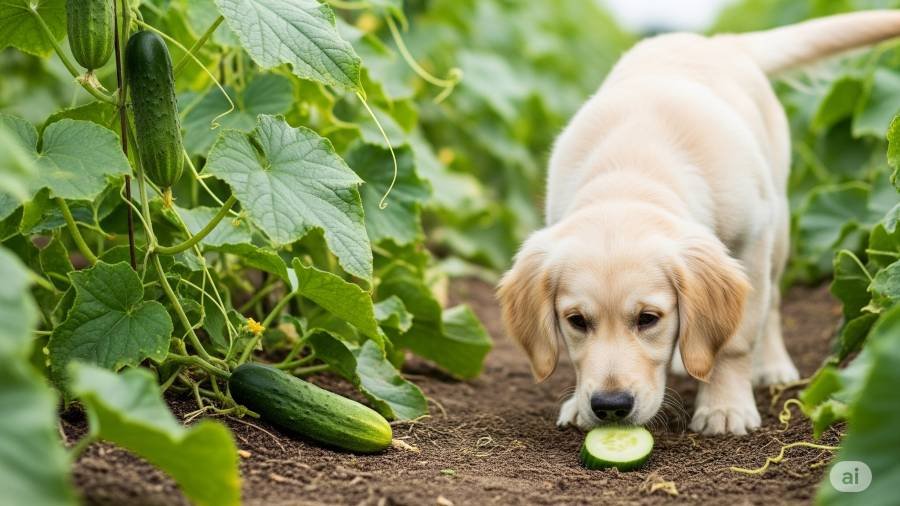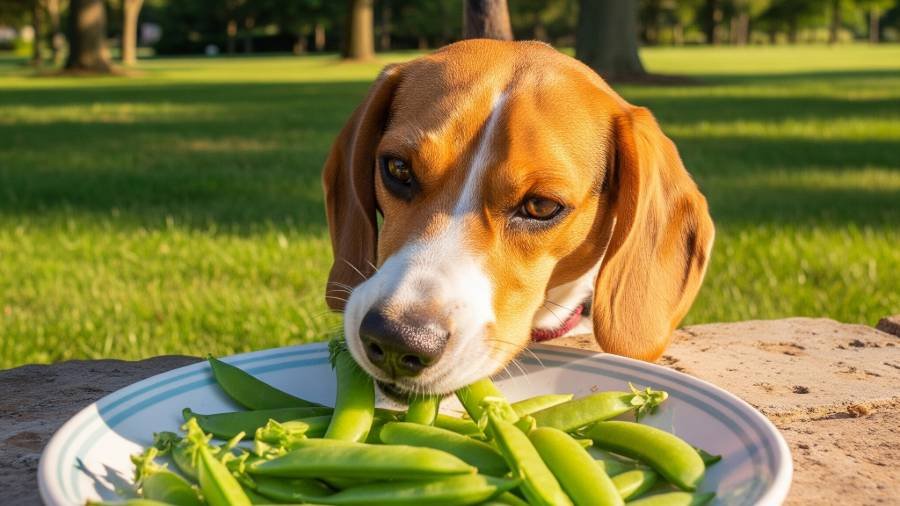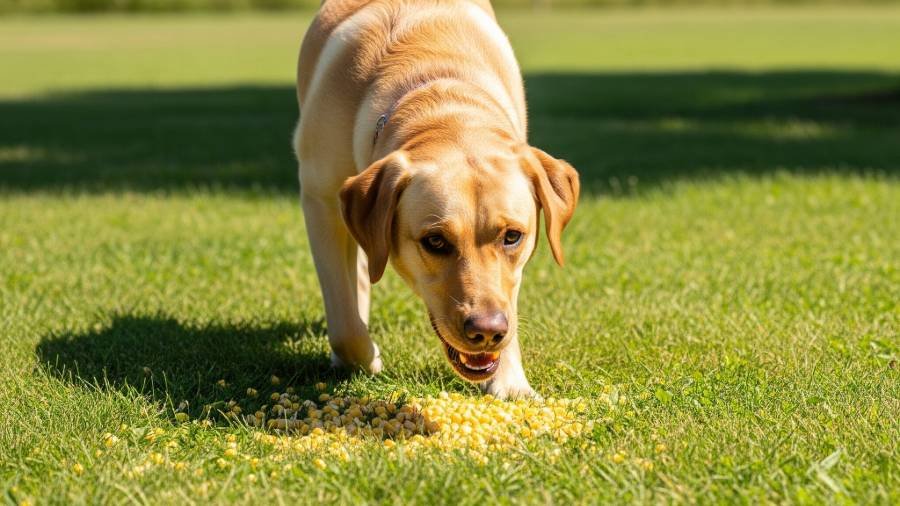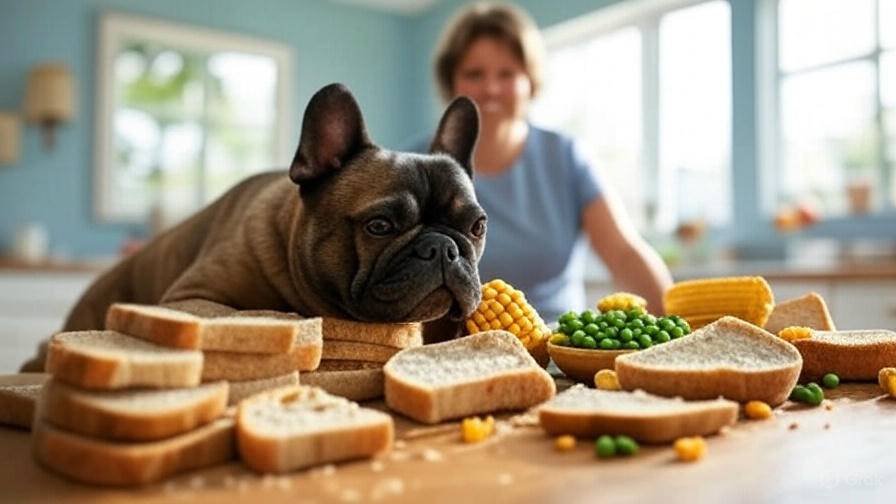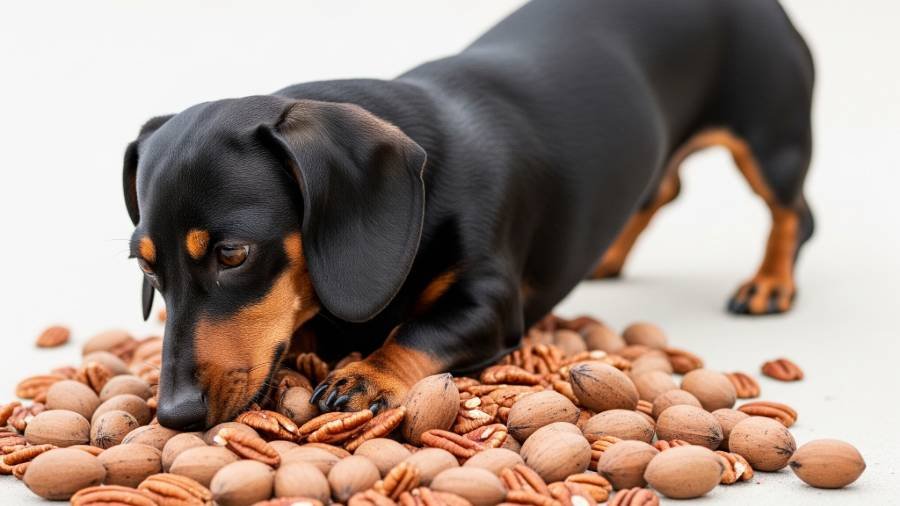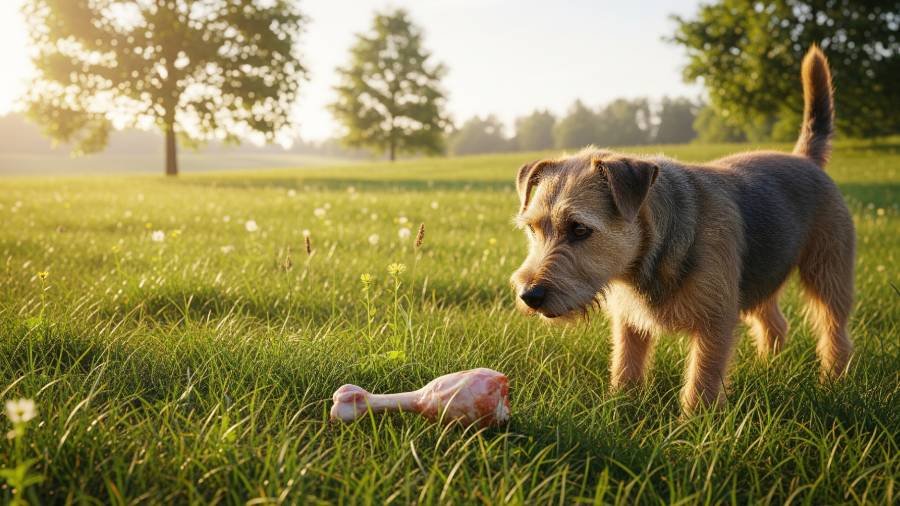Dogs can safely eat carrots, whether cooked carrots or raw, as a low-calorie snack that benefits their overall health when offered in moderation.
As omnivores, dogs can enjoy people foods like carrots as part of a balanced dog’s diet, but they should complement, not replace, their primary dog food.
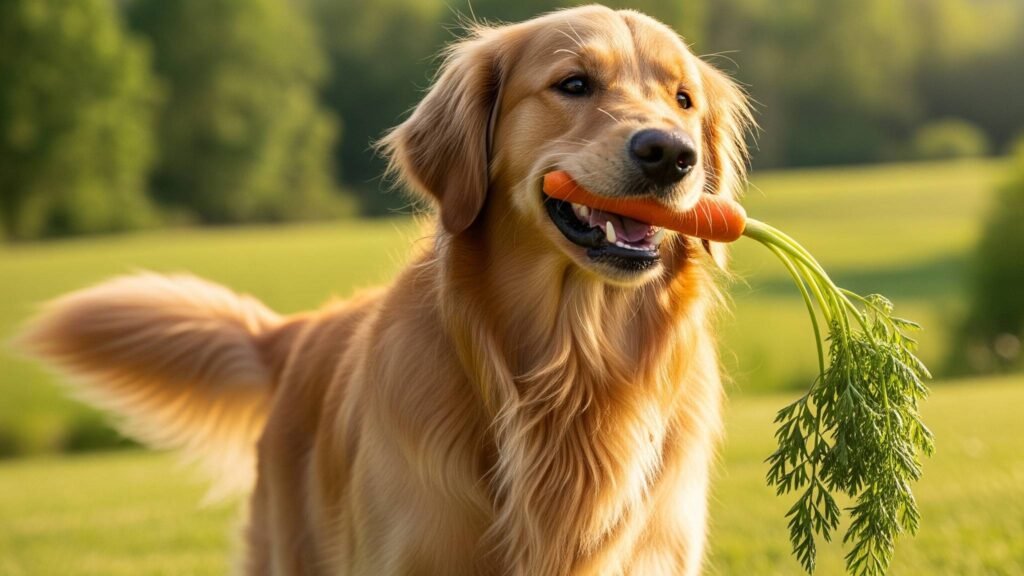
Potential Benefits of Carrots for Dogs
Incorporating carrots into a dog’s diet offers several advantages when dogs can eat them in sized chunks:
- Eye Health: Rich in beta carotene, carrots support vision and eye health, potentially reducing the risk of age-related issues.
- Skin and Coat: The vitamins and minerals, including an excellent source of vitamin A, promote a shiny coat and healthy skin.
- Low-Calorie Snack: Carrots are a guilt-free treat, ideal for dogs needing weight management due to their low calorie content.
- Immune System: The antioxidants and nutrients bolster the immune system, aiding overall wellness.
- Dental Care: Chewing raw carrots can help clean a dog’s teeth, reducing plaque and supporting oral hygiene.
These benefits make carrots a nutritious addition, but they should be a minor part of a dog’s diet. For more on safe vegetables, check what vegetables can dogs eat.
Risks and Dangers of Carrots for Dogs
While carrots are safe for dogs, some risks should be noted:
- Choking Hazard: Large or whole carrots can pose a choking risk, especially for small dogs or those that swallow sized chunks without chewing.
- Digestive Upset: Overfeeding cooked carrots or raw ones may cause mild stomach issues, like gas or diarrhea, if a dog has trouble digesting high fiber.
- Pesticide Exposure: Non-organic carrots may carry residues, requiring thorough washing before dogs can eat them.
- Sugar Content: Though low, excessive carrot intake can add sugar to a dog’s diet, potentially affecting those with diabetes.
- Nutritional Imbalance: Relying too much on carrots can lack essential proteins and fats needed for a balanced dog’s diet.
- Allergies: Rare cases may show allergic reactions (e.g., itching, swelling) to carrots.
How to Safely Feed Carrots to Your Dog
To ensure carrots are a safe treat when you feed carrots to your dog, follow these steps:
- Wash Thoroughly: Rinse carrots under water to remove dirt, pesticides, or contaminants, even if organic.
- Prepare Properly: Peel if needed, and cut into small, bite-sized chunks or thin slices, whether cooked carrots or raw, to avoid choking.
- Cook Optionally: Steaming or boiling can soften carrots for easier digestion, though raw is fine for most dogs.
- Feed in Moderation: Offer a small amount (e.g., a few slices or a tablespoon) once or twice a week, keeping treats under 10% of your dog’s daily caloric intake.
- Avoid Seasonings: Keep carrots plain, avoiding ingredients like garlic or onion, which are toxic. See can dogs eat garlic for details.
- Monitor Reactions: Introduce carrots gradually and watch for digestive upset (e.g., vomiting, diarrhea) or allergies (e.g., itching) over 24–48 hours. Consult a vet if issues arise.
- Consult a Vet: Seek veterinary advice before feeding carrots, especially for dogs with diabetes, digestive issues, or allergies.
Signs of Carrot-Related Issues
If a dog eats too many carrots or reacts poorly, look for:
- Vomiting or diarrhea from trouble digesting
- Excessive gas or bloating
- Lethargy or reduced appetite
- Itching, swelling, or skin changes (signs of an allergic reaction)
- Choking or gagging (from large pieces)
If these signs appear, stop feeding carrots and contact a veterinarian immediately. Choking or severe digestive issues require urgent care.
Expert Opinions
Veterinary sources, such as the AKC and PetMD, confirm that carrots are safe for dogs and a healthy snack, highlighting their benefits for eye health and dog’s teeth. The AKC recommends cutting into small pieces and cooking if needed to aid digestion.
Experts advise limiting treats and focusing on a balanced dog’s diet. For more on safe produce, explore can dogs eat cucumbers or can dogs eat broccoli.
Additional Considerations
- Health Conditions: Dogs with diabetes or sensitive stomachs should eat carrots cautiously due to sugar and fiber. Consult a vet first.
- Puppies: Young dogs may need softer, cooked carrots in small amounts, as advised by a vet.
- Dog Preferences: Some dogs may not enjoy carrots’ crunch. If so, try alternatives like those in can dogs eat apples.
- Organic vs. Non-Organic: Organic carrots may reduce pesticide risk, but all should be washed thoroughly.
- Dental Benefits: Raw carrots are great for dog’s teeth, but dental chews might offer more robust cleaning for some canines.
Safe Treat Alternatives
Instead of carrots, consider these safe-for-dogs treats, tailored to enhance a dog’s diet and offering internal linking opportunities:
- Cooked Turkey: Plain, unseasoned turkey provides lean protein.
- Blueberries: A few fresh blueberries offer antioxidants and are low in calories.
- Cucumbers: Small, peeled cucumber slices provide hydration and fiber.
- Peas: A few cooked peas offer vitamins and a crunchy texture.
Introduce new dog treats gradually, monitor for reactions, and consult a vet if unsure about safety.
Dogs can eat carrots as a safe, low-calorie snack, offering benefits like eye health, skin and coat support, and dental care when fed in moderation.
However, risks like choking, digestive upset, or pesticide exposure require cutting into sized chunks and proper preparation. Dogs with health issues or puppies should avoid carrots unless approved by a vet, and a balanced dog’s diet should remain the focus.
Always consult a veterinarian before adding carrots or other people foods. For more on canine nutrition, explore can dogs eat watermelon, can dogs eat broccoli, or what vegetables can dogs eat.
For additional questions about what dogs can eat or nutrition, feel free to ask!
